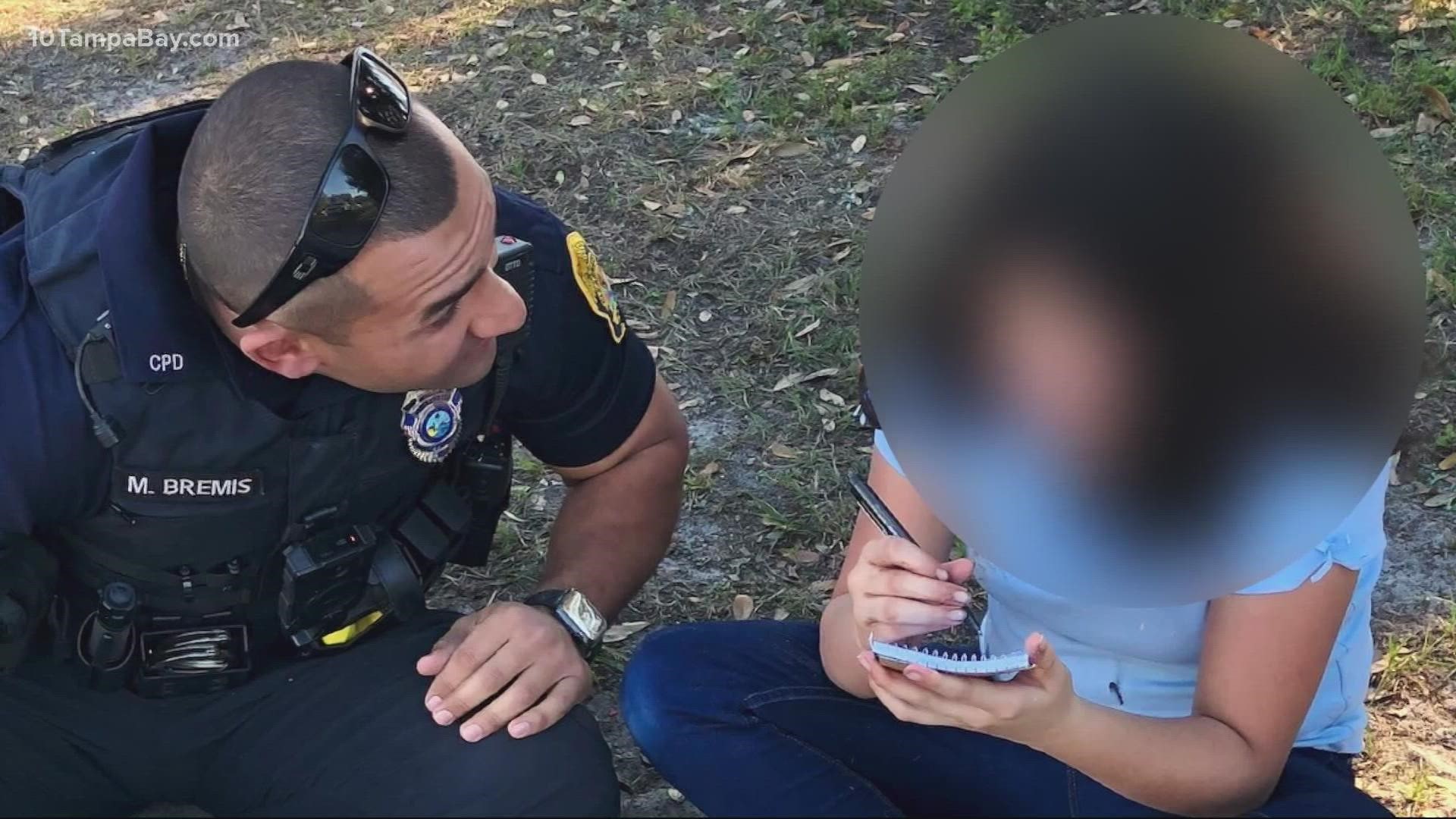CLEARWATER, Fla. — When an officer gets called to a scene, they have very little info about what they might encounter.
A person could be agitated, scared or even not understand what's happening.
Last month a 10-year-old girl was reported missing from her school and then 911 calls were coming in about a girl running into traffic.
Some Clearwater police officers nearby answered that call and it turned into a teaching moment for all involved.
Officer Matthew Bremis is a new recruit with Clearwater Police Department.
"So I've been here since September and I'm currently going through the field training program right now. I have about two weeks left," he said.
He was recently doing field training with Corporal Ashley Hinkebein. "We got a call for I believe it was a little girl running in and out of traffic."
Hinkebein says they didn't have much to go on. "Very vague information. There's a kid running into traffic, we're not entirely sure what's going on. Whoever called in, the call taker was saying that the child was not giving a bunch of information so we really weren't sure."
Bremis was still getting as much information as possible. "We knew right away that she had communication issues. That was kind of relayed to us through dispatch, that she kind of had a hard time speaking and they couldn't get any information out of her."
When they pulled up, Hinkebein thought the girl might have autism based on how she was acting. "I'm really familiar with it because my stepson's autistic so some of them show similar signs."
They found the little girl standing alongside Sunset Point Road near Murray Avenue. Hinkebein wanted Bremis to talk with the little girl and try to get information from her, even though they knew she was having a hard time communicating.
"I decided to sit down with her on the grass and we just started speaking and I kind of got a little information out of her, but I took out my notepad and she seemed interested in that. So I gave her my notepad to see if she wanted to write down little things and she started to write down information on a notepad and I was able to gather just her mom's name and basic information from her. Just little stuff and we went from there," Bremis said.
Hinkebein was blown away by how well Bremis handled the situation. "I love seeing it, because if it was my stepson that had run out into traffic, I would want the same response from any officer, that they would get from me or anyone's that really familiar with it."
Bremis said it made his day. "That was a great day. Every day is a great day. So that call made it an even better day."
Hinkebein agrees. "Our jobs are really hard right now in these times and I think little wins like that. She gets home safe. She's not hurt, she didn't get hit by a car or anything like that. Those are the days we consider ourselves extremely successful and fortunate. We love what we do, no matter if it's a good day or a bad day, but I think those wins are especially important to us."
Dr. Norrine Russell works with families whose children are on the autism spectrum, including her own 13-year-old son.
She says when she sees stories like this, it makes her feel like people with autism in our community and parents who are caring for children with autism are just as important as everyone else.
She explained why this training is so important. "What's really happening for the child with autism is they're overstimulated, they don't understand what's going on and they don't really know how to do what the officer is asking them to do."
She says parents can also help officers, by letting them know how their child may respond to seeing an officer. Tell police what the child likes, so they can connect with them when found.

